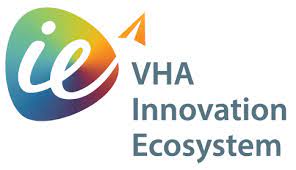

We worked alongside Lori Murphy, a VA Innovation Fellow, to design and facilitate the Social Connection Workshop Series. This four-part series was held over a month and brought together more than 200 experts. Collectively, the series was designed to tackle a pressing challenge: fostering collaboration and peer learning among leaders, researchers, and innovators working to combat veteran loneliness.
While the need for a community of practice was clear, creating meaningful connections across this group required a fresh approach. More details can be found in this article “Workshop to expand Social Connection resources for Veterans” found on the VA News site.
“I would 100% work with Spud in the future; in fact… I don’t think I would work with anyone else! He gave me such fantastic support and advice. I couldn’t stop smiling because he was able to take my vision and amplify it even further!”
Lori Murphy
Social Worker and VA Innovation Fellow
Lori Murphy
Social Worker and VA Innovation Fellow

As part of our Virtual Connection Cafe offering, we hosted the series on the Remo platform. Each session was designed to spark connection, surface collective insights, and chart a shared path forward for the group. Below is a breakdown of each of the four sessions.
Session 1: Speed Networking
The first session set the stage for meaningful connections and collaboration. This virtual event opened with remarks from Dr. Shereef Elnahal, VA Under Secretary for Health, emphasizing the importance of addressing veteran loneliness through innovative approaches. Author Julia Hotz followed with an inspiring presentation on the global movement of social prescribing, which links individuals to community-based resources to combat isolation.
Participants then engaged in an interactive Speed Networking activity designed to foster new connections and spark ideas. Small group discussions allowed attendees to share their expertise, explore common challenges, and begin building the foundation of a community of practice dedicated to tackling social connection issues for veterans.
Session 2: World Cafe
In the the second session, Dr. Carolyn Clancy, Assistant Under Secretary for Health for Discovery, Education, and Affiliate Networks, gave opening remarks by highlighting the VA’s commitment to addressing social isolation among veterans. Participants then engaged in rotating small-group discussions, exploring critical questions related to enhancing social connections for veterans. This format encouraged diverse perspectives and collective problem-solving, leading to actionable insights and strategies for future initiatives. Overarching themes emerged and from these discussions, recommendations were created.


Session 3: Collective Story Harvest
The third session utilized the Collective Story Harvest technique to share and analyze experiences from various stakeholders. Storytellers, including program directors and researchers, recounted their initiatives aimed at improving veteran social connections. All other participants were then encouraged to listen for a specific element from the storyteller that they felt most compelled to visit. These included listening for Success Criteria, Defining Moments, Tools & Technologies, Collaborations, and Challenges.
Listeners then reflected on these narratives, identifying common themes, challenges, and successful approaches. This process facilitated deep learning while sparking key connections, and highlighted effective practices that could be replicated or adapted in other contexts.
Session 4: Open Space
The final session leveraged Open Space as a facilitation format, allowing participants to set the agenda based on topics they were passionate about. This self-organizing approach led to discussions on innovative interventions, policy advocacy, and community engagement strategies. The session concluded with participants sharing their insights and commitments to action, reinforcing a collective dedication to enhancing social connections for veterans.
Collectively, these sessions fostered a vibrant community of practice, equipping participants with new tools, perspectives, and networks to address veteran loneliness and social isolation effectively. The series culminated in a comprehensive final report – as shown below – summarizing key insights and recommendations.

